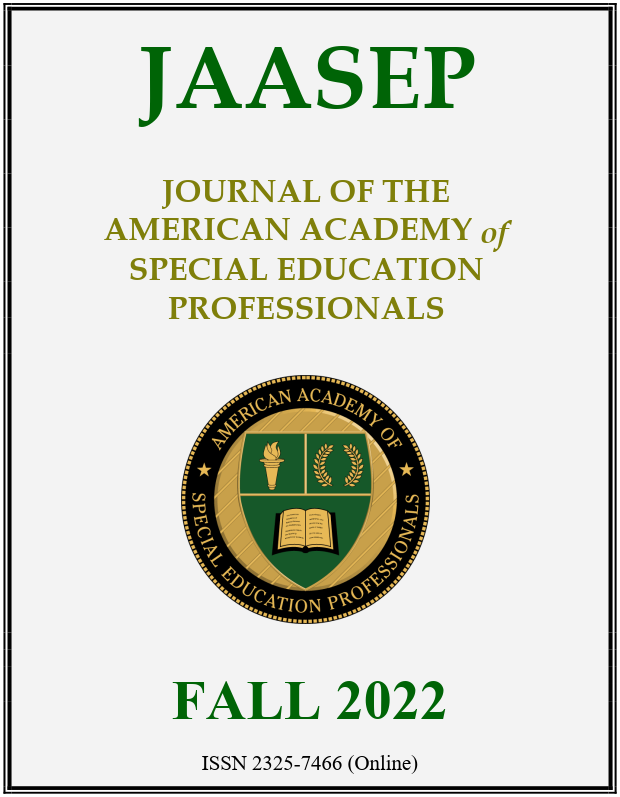Special Education in Rural Mexico: Two Schools in Jalisco
Cieloha, (April 16, 1986,). Special Education in the context of national development: The case of Mexico. Unpublished paper presented at American Educational Research Association, San Francisco, CA.
Despagne, C. & Jacobo, M. (2016). Desafios actuals de la escuela monolítica mexicana: el caso de los alumnos migrantes transnacionales. Sinéctica, 47, 1-17.
Devlin, W. (2008). Discover the magic of papelmalecho in Tapalpa. mexconnect. https://www.
Mexconnect.com/articles/452-discover-the-magic-of papelmalecho-in-tapalpa Disability Rights Now, 2018. https://www.globaldisabilityrightsnow.org/mexico Author, (2017) XXXXXXXXX.
García-Cedillo, I. , Romero-Contreras, S. & Fletcher, T. (2014). Special education today in Mexico. Advances in Special Education, Volume 28, 61-89. DOI: https://doi.org/10.1108/S0270-401320140000028009
Jacobo, M. (2017). De regreso a “casa” y sin Apostilla: estudiantes México-Americanos en Mexico. Sinéctica, 48, 118. Jacobo, M. & Landa, N. (August, 2015). La exclusión de los niños que retornan a México. Nexos. http://www.nexos.com.mx/?p=25878
OECD (March 2018). Organization for Economic Development and Cooperation. Education Policy Outlook: Mexico. https://www/oecd.org/education/EducationPolicy-Outlook-Country-Profile-Mexico-2018.pdf
U.S. Department of State (April 8, 2011). 2010 Country Reports on Human Rights Practices: Mexico. https://www.refworld.org/docid/4da56da7ad.html
Larsson, N. (March 9, 2017) Mexican government accused of torture at disabled care home. The Guardian . https://www.theguardian.com/global-development-professionals-network/2017/mar/09/ending-abuse-institutions-charity-case-mexican-government
Medina, D. & Menjiver, C. (2015). The context of return migration: challenges of mixed status families in Mexico’s schools. Ethnic and Racial Studies. Vol. 38 (12), pp. 2123, 2139. Moreno, T. (2019). Mexican government cuts its budget for special education schools. Reported in El Universal, 11/28/2019. Retrieved 5/20/20 at https://www.eluniversal.com.mx/english/mexican-government-cuts-its-budget DOI: https://doi.org/10.1080/01419870.2015.1036091
PADCC ( 2019). Caring for the Health of Refugees and Immigrants with Disabilities Mexico. Pennsylvania Developmental Disabilities Council. https://www.paddc.org/wp-content/uploads/2019/10/Mexico-Country-Primer-on-Disabilities.pdf
Panait, C. & Zúñiga, V. (2016). Children between the U.S. and México: Fractured Schooling and Linguistic Ruptures. Mexican Studies Vol. 32, 2, pp. 226-251. DOI: https://doi.org/10.1525/mex.2016.32.2.226
Rodríguez, LL., Aceves, J., Ahern, L. Brizuela,L., Jacobstein, D., Heffernan, J., Millán, I. & Rosenthal, E. (May 2019). At the Mexico-US border and segregated from society: Children and adults with disabilities subject to arbitrary detention, abuse, and early death inside Mexican orphanages and institutions. Disability Rights International. https://www.driadvocacy.org/wp-content/uploads/MEX-ReportMay-2019.pdf
Sánchez, J. & Zúñiga, V. (2010).Trayectorias de los alumnos transnacionales en México: Propuesta interctultural de atención educativa. Trayectorias, 12, 5-23.
Zúñiga, V. & Haman, (2009). Sojourners in Mexico with US school experience: A new taxonomy for transnational students. Comparative Education Review, 53, (3), 329-353. DOI: https://doi.org/10.1086/599356
